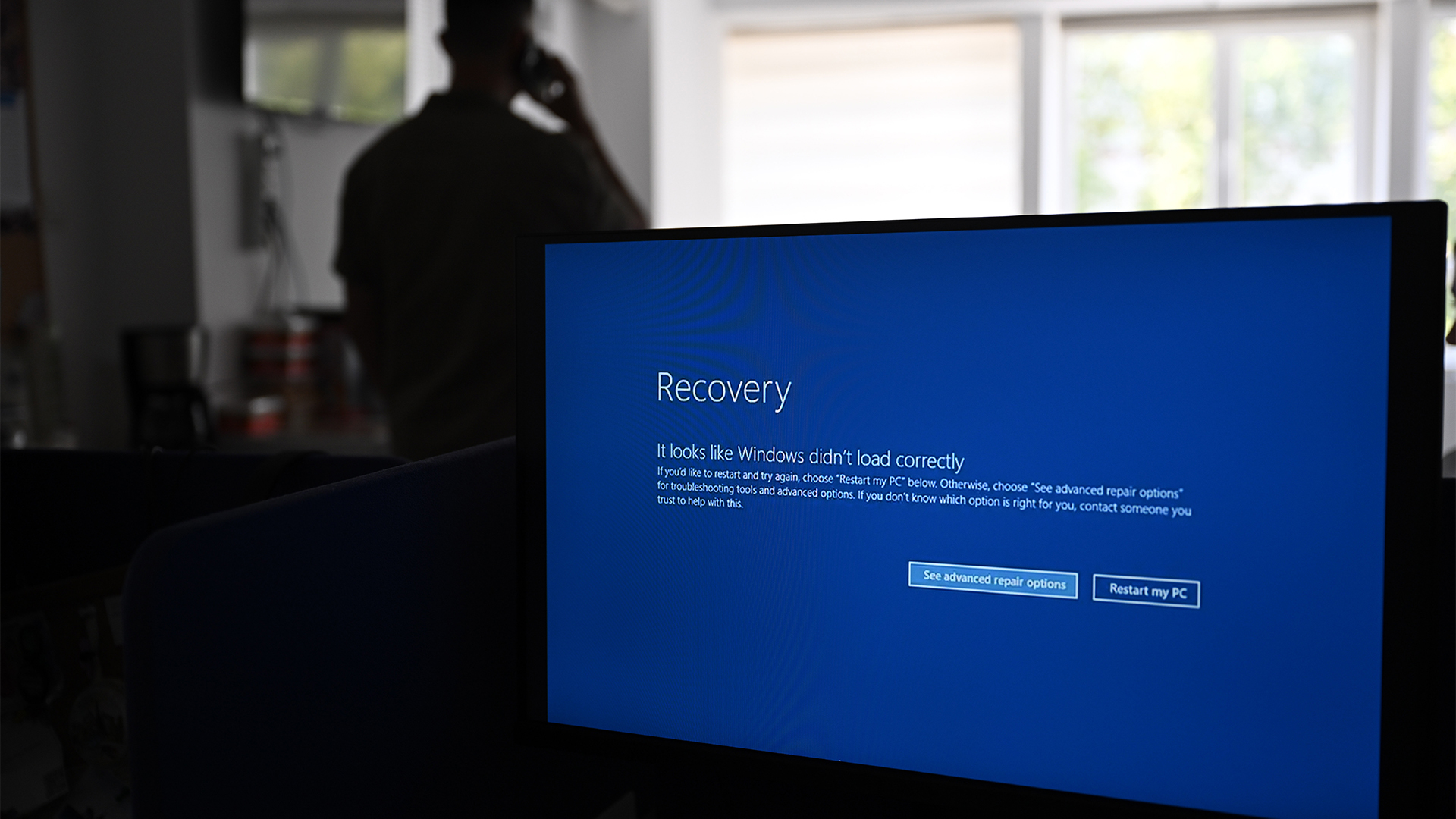Remote workers suffered most mental distress during pandemic, report claims
The report comes as Boris Johnson prepares to lift lockdown restrictions, but there's no clear line on working from home


Sign up today and you will receive a free copy of our Future Focus 2025 report - the leading guidance on AI, cybersecurity and other IT challenges as per 700+ senior executives
You are now subscribed
Your newsletter sign-up was successful
Working from home during the pandemic has led to increased levels of mental distress and isolation, according to new research.
The National Centre for Social Research (NatCen) found that those who lived alone and worked from home suffered the most, but also suggested that people that lived with others experienced similar feelings of loneliness.
The findings come from analysis of 8,675 interviews conducted by NatCen before the pandemic, and again in May, July and November of 2020. It's important to note that only people in work were questioned and the comparison is between those that worked from home and those that didn't, so there is no data for people who were furloughed or lost their jobs.
The study also found that working from home protected people from financial difficulties, whereas those that didn't have the option to do their jobs remotely were more likely to report struggles with money. However, those living alone felt more social isolation regardless of their work arrangements, which suggests there is no single remedy to address these issues, according to NatCen.
A lack of interaction between colleagues and a blurring of the lines of work and life were cited as the main reasons in the study, with a lack of new experiences and face-to-face interactions thought to be contributing to increased mental distress for home workers.
"More of us than ever now work from home and use technology to replace many aspects of work previously done in person, but this cannot fully replicate the working environment for everyone," said Isabel Taylor, research director at NatCen.
RELATED RESOURCE

"As the government considers current working guidance, individuals, employers and government departments should be aware of the impact working from home is likely having on people's mental health."
Sign up today and you will receive a free copy of our Future Focus 2025 report - the leading guidance on AI, cybersecurity and other IT challenges as per 700+ senior executives
On Monday, the prime minister, Boris Johnson is set to announce that the UK is moving fully away from lockdown restrictions, which is thought to include the end of social distancing measures and requirements to wear a mask. However, it isn't clear what the government's guidance on working from home will be as there appears to be conflicting messages coming from Whitehall.
Bobby Hellard is ITPro's Reviews Editor and has worked on CloudPro and ChannelPro since 2018. In his time at ITPro, Bobby has covered stories for all the major technology companies, such as Apple, Microsoft, Amazon and Facebook, and regularly attends industry-leading events such as AWS Re:Invent and Google Cloud Next.
Bobby mainly covers hardware reviews, but you will also recognize him as the face of many of our video reviews of laptops and smartphones.
-
 Anthropic reveals Claude Opus 4.6, its new enterprise-focused model
Anthropic reveals Claude Opus 4.6, its new enterprise-focused modelNews The AI developer highlighted financial and legal tasks, as well as agent tool use, as particular strengths for the new model
-
 AI-generated code is fast becoming the biggest enterprise security risk
AI-generated code is fast becoming the biggest enterprise security riskNews Security teams are scrambling to catch AI-generated flaws that appear correct before disaster strikes
-
 Infosys co-founder Narayana Murthy called for a 70 hour week last year — now he says that’s not enough
Infosys co-founder Narayana Murthy called for a 70 hour week last year — now he says that’s not enoughNews Murthy thinks longer hours akin to China’s '996' approach are the key to success
-
 Microsoft could be preparing for a crackdown on remote work
Microsoft could be preparing for a crackdown on remote workNews The tech giant is the latest to implement stricter policies around hybrid working without requiring a full five days in the office
-
 IT professionals aren’t budging on flexible work demands – and more than half say they’ll quit if employers don’t meet expectations
IT professionals aren’t budging on flexible work demands – and more than half say they’ll quit if employers don’t meet expectationsNews Analysis from Randstad shows 40% of UK-based IT pros have quit over a lack of flexible work options, while 31% of workers globally have done the same.
-
 'The tide seems to be turning towards office attendance': 64% of hybrid business leaders want staff back in the office – but many worry that enforcing RTO mandates will drive employees away
'The tide seems to be turning towards office attendance': 64% of hybrid business leaders want staff back in the office – but many worry that enforcing RTO mandates will drive employees awayAnalysis Many UK business leaders want their staff back in the office more frequently, but they’re scared to implement return to office (RTO) mandates in fear of worker revolts.
-
 Employees are dead set on flexible working arrangements – three quarters would turn down a role that didn't offer hybrid options as work-life balance becomes more important than pay
Employees are dead set on flexible working arrangements – three quarters would turn down a role that didn't offer hybrid options as work-life balance becomes more important than payNews New research shows workers are increasingly demanding flexible working arrangements from employers.
-
 Nearly half of tech workers are seeking new roles – declining employee benefits and reduced flexible working options have staff looking elsewhere
Nearly half of tech workers are seeking new roles – declining employee benefits and reduced flexible working options have staff looking elsewhereNews While salaries are rising for tech workers, other benefits are in decline, leading to a fall in job satisfaction
-
 It's been two weeks since CrowdStrike caused a global IT outage – what lessons should we learn?
It's been two weeks since CrowdStrike caused a global IT outage – what lessons should we learn?Opinion The incident on 19 July was possibly the biggest IT outage to date
-
 Game-changing data security in seconds
Game-changing data security in secondswhitepaper Lepide’s real-time in-browser demo
